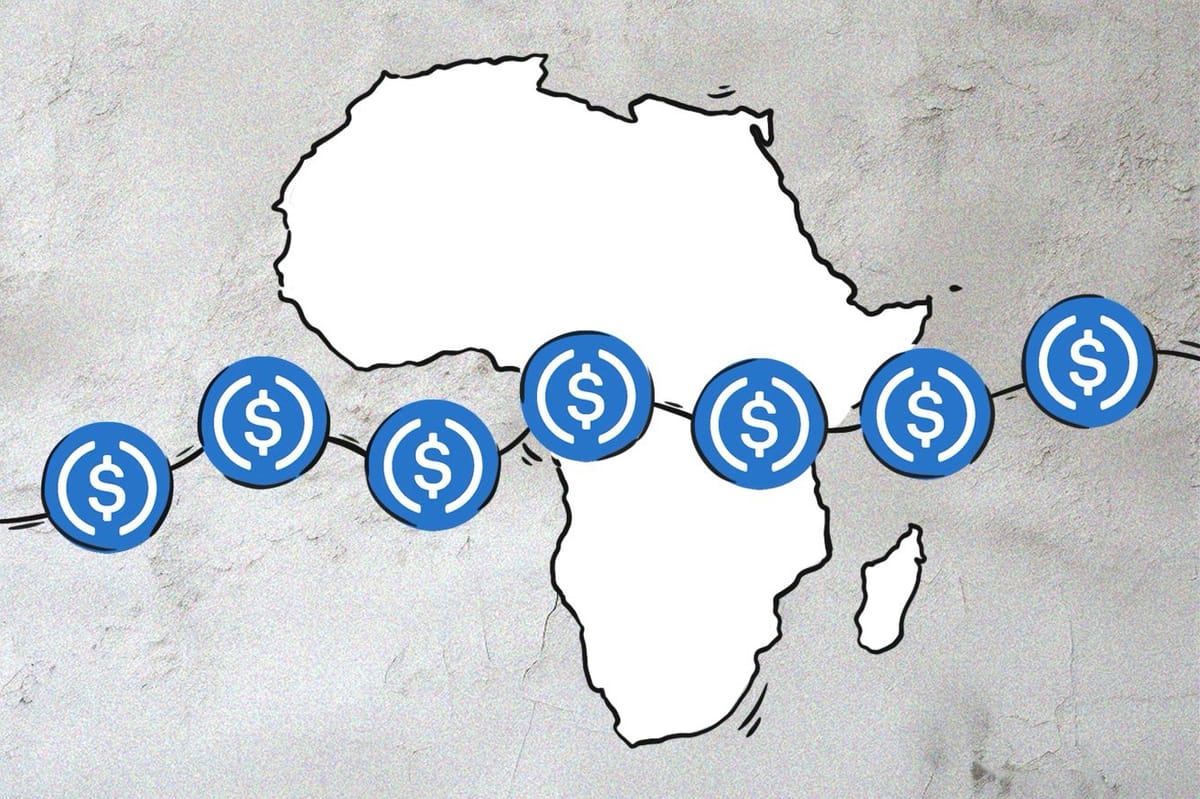
Coinbase has announced a new partnership with Yellow Card, which was the first cryptocurrency company in Africa to gain a Virtual Asset Service Provider (VASP) licence in 2022, and now operates in 20 countries across the continent. This initiative is another step in the exchange’s “Go Broad, Go Deep” expansion strategy. According to the statement, the company aims to expand access to its products across the African continent, with one of the main goals being to promote USDC coin, originally a joint venture between Coinbase and Circle.
“Through our new partnership with Yellow Card, one of Africa’s leading stablecoin exchanges and a Coinbase Ventures portfolio company, millions of users will gain access to USDC on Base with fast, reliable transactions at fees of less than half the cost of fiat transfers.”
Coinbase announced that Wallet users will be able to purchase USDC directly within the app, while users of the Yellow Card platform will receive the opportunity to purchase USDC on Base, benefiting from the lower fees on the Layer 2 blockchain. Yellow Card CEO Chris Maurice added that the partnership includes the integration by Coinbase of Yellow Card’s payment system, so that customers in Africa can on and off-ramp fiat to Bitcoin and USDC on Base more smoothly. A feature that allows users to send money by sharing a link in any app, which Coinbase introduced last December, will also become available to local users.
Beyond excited to bring @coinbase to Africa! 🎉🌍
— Chris Maurice⚜️ (@chrismaurice) January 11, 2024
Stablecoins like USDC solve real problems for real people & businesses on the continent.
With @yellowcard_app's regional expertise and Coinbase’s global brand and infrastructure, we will empower the next one billion people. https://t.co/9DOgZ4TKMr
Africa is a valuable market for stablecoin issuers, due to high inflation rates and other economic problems in many countries. Cheap and fast cross-border transfers are important for local citizens, who are extremely dependent on money received from their diaspora working abroad. The continent has one of the fastest-growing crypto markets in the world, but lacks regulation, crypto awareness and universal internet accessibility. Circle’s main rival, Tether, has also entered into a strategic alliance with Yellow Card, which is aimed at fostering the adoption of Tether's stablecoin, but mainly via educational initiatives.
On the other side of the Atlantic Ocean, USDC issuer Circle has filed for an initial public offering (IPO) with the U.S. Securities and Exchange Commission. According to a press release, “the number of shares to be offered and the price range for the proposed offering have not yet been determined.” Apart from raising funds, an IPO can enhance user trust and loyalty by improving transparency and providing external confirmation of its financial stability and security.
Plans for an IPO have been a part of Circle’s core strategy for a long time, but the crypto market crash of 2022 delayed the move. Circle previously tried to go public in 2022 via a deal with a special purpose acquisition company, but the acquisition, reportedly worth $9 billion, was eventually cancelled after the FTX collapse.
Circle's USDC is the second-largest stablecoin in the world with a market cap of around $25 billion. Tether is the largest, with a market cap of almost $95 billion. The two stablecoin issuers compete for users by entering various partnerships around the globe, with Tether often being one step ahead. While the African move is nothing outstanding, the IPO, if successful, might shift the balance of power in favour of USDC, at least in the U.S.

